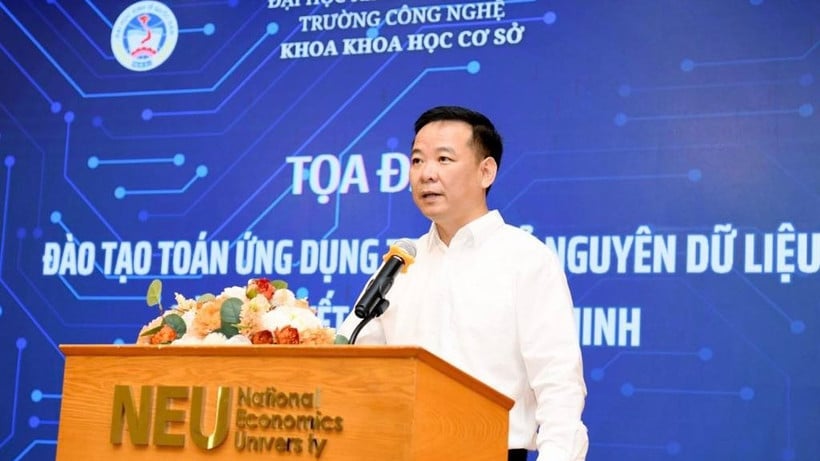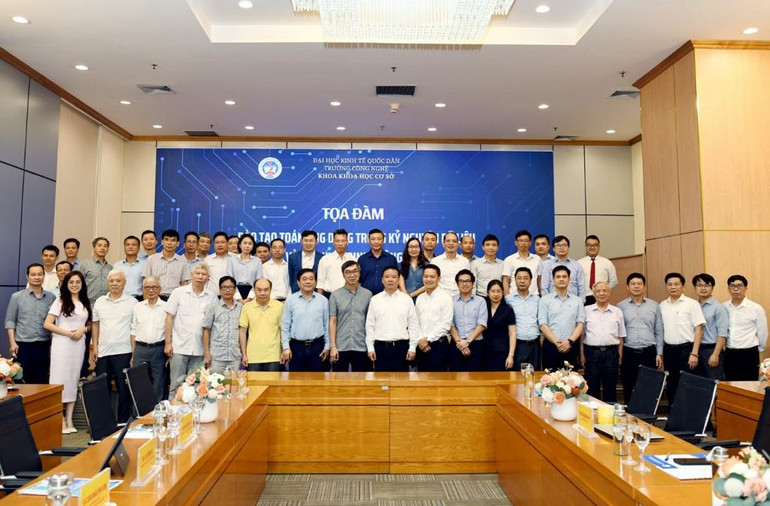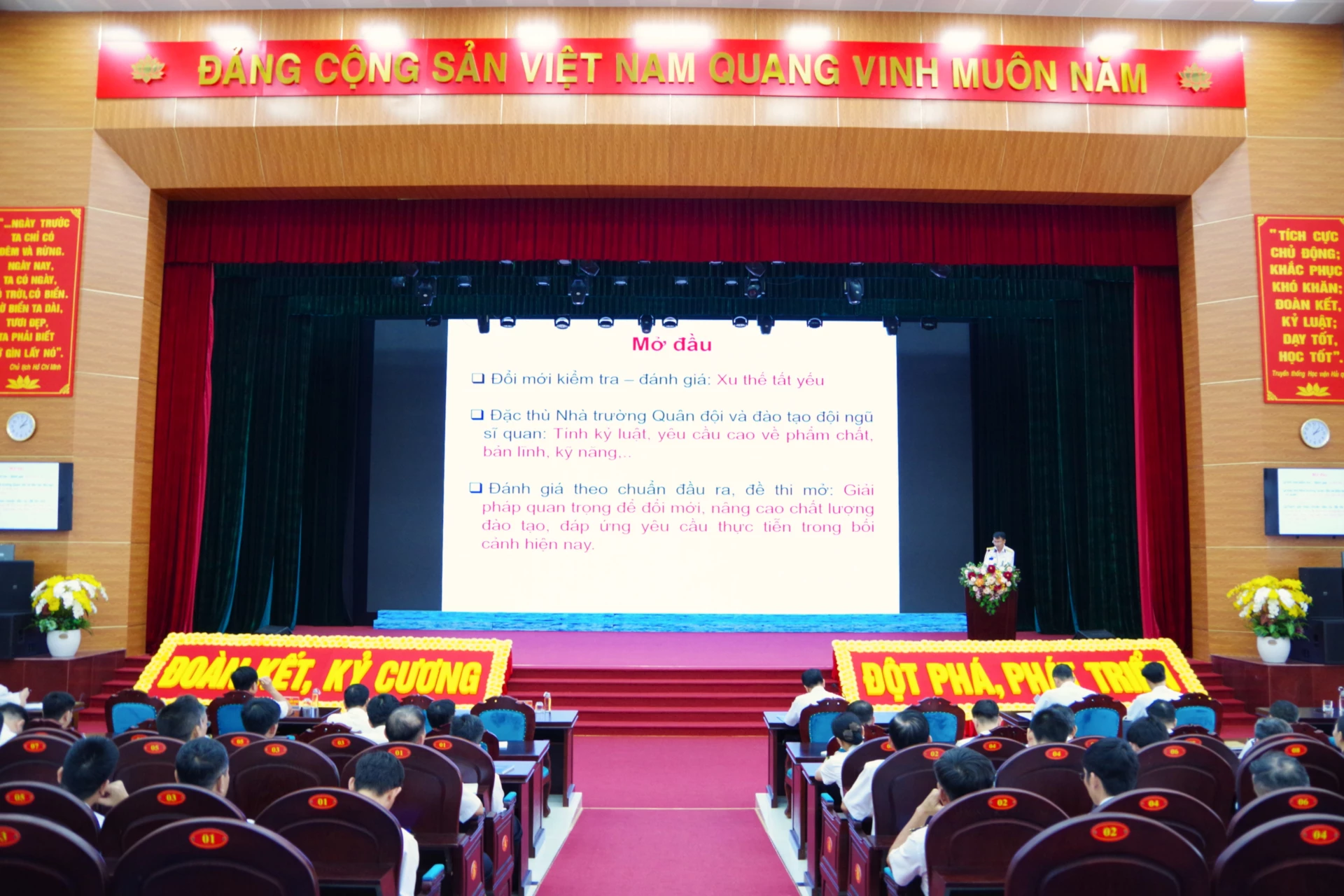
From product recommendation algorithms on e-commerce platforms, increasingly accurate weather forecasting models, to self-driving cars, virtual assistants or medical imaging diagnostic tools, technology is everywhere, constantly creating revolutionary changes in learning, working, communicating and in the way society operates and makes decisions.
Behind these breakthrough technologies are complex algorithms, massive data analysis models and sophisticated optimization methods. Silently but persistently, Applied Mathematics is the foundation that creates, nurtures and guides all technological achievements, from which to make advances that amaze the world .
Applied Mathematics is a field of science that uses mathematical theories, methods and tools to research, analyze and solve problems arising in practice in many fields, from science, engineering to economics, finance... Thanks to that characteristic, Applied Mathematics is considered the center of quantitative sciences, and at the same time plays an important role as a bridge between theoretical mathematics and practical life.
The Role of Applied Mathematics in the Age of Data and Artificial Intelligence
In the era of data and artificial intelligence, the explosion of information, the speed of computation, and modern data processing techniques have made decision-making based on models, data, and quantitative thinking a core competency in most fields. While decision-making was previously based mainly on experience, it is now being profoundly redefined in the light of data analysis methods, mathematical models, and optimization algorithms.
Under the impact of big data and advances in artificial intelligence, many industries from economics, finance, manufacturing, business, engineering, biomedicine to public administration, security and defense are undergoing a strong transformation in approach and decision making.
Data analysis, modeling, and algorithmic applications are increasingly asserting their role as core foundations, shaping effective decision-making methods in all fields. Artificial intelligence, machine learning, simulation, and advanced computational algorithms all require a solid mathematical foundation to operate accurately, efficiently, and responsibly.
In that context, Applied Mathematics is not only a fundamental subject but is asserting its position as an important scientific pillar, helping people understand and model the complex world; transforming data into knowledge, knowledge into action, and action into practical value for the community and society.
Beyond its role as a fundamental science, Applied Mathematics has become the “common language” for deciphering the complexity of data, modeling multidimensional systems, and providing the scientific basis for intelligent, quantitative, and informed decision-making. This role is expanding as the world becomes increasingly dependent on data and intelligent systems.

Human resource needs and status of applied mathematics experts
As the “operating language” of the knowledge economy and the bridge between scientific thinking and practical action, Applied Mathematics has become the “silent hero” driving innovation and growth in most areas of the digital economy.
Over the past decade, the global demand for Applied Mathematics has increased sharply, especially in the high-tech, financial, healthcare and logistics industries. The World Economic Forum (2023) report shows that 8 out of 10 skills predicted to be in highest demand in the coming years are directly related to the ability to model, analyze and process data, the core skills of Applied Mathematics. Positions such as Data Scientist, Quantitative Analyst, Operations Researcher, AI Engineer, Risk Modeler are continuously among the fastest growing occupations.
International organizations and global businesses are actively looking for people with a solid foundation in Mathematics, combined with programming skills, data analysis and modeling thinking. Notably, this demand is not limited to traditional industries but has also spread to many new areas such as biomedicine, high-tech agriculture, environment, smart logistics and public policy planning.
Human resource demand for applied mathematics in Vietnam
In Vietnam, the demand for human resources in Applied Mathematics is not outside the general orbit of the world in the context of strong digital economic development. According to estimates from the Ministry of Labor, the demand for human resources in the fields of data analysis, artificial intelligence and modeling is increasing by 25 to 30% per year, while the supply only meets about 40 to 50%.
This leads to the fact that the demand for recruiting human resources with quantitative skills and data analysis capabilities is increasing in many fields, with popular positions such as: data analyst, risk management specialist, business analyst, modeling engineer, or supply chain optimization specialist.
Digital banking, insurance, fintech, market analysis, logistics, smart manufacturing, digital healthcare, etc. are "thirsty" for human resources with the capacity to model, optimize, and analyze risks, but in reality, the source of qualified candidates is still limited.
Despite the huge demand, the main weakness of the current Vietnamese labor market is the serious shortage of candidates with a comprehensive combination of deep mathematical background, modern technological skills and practical problem-solving ability.
In the context of digital economy, big data and artificial intelligence are shaping every field, the demand for human resources with expertise in Applied Mathematics is increasing rapidly.
Applied Mathematics professionals are able to: build and analyze models (translate practical problems into mathematical language); process and analyze data (use statistical tools and algorithms to extract valuable knowledge); develop algorithms (create intelligent solutions to optimization, forecasting and classification problems).
It is the combination of mathematics, technology and practical knowledge that makes them the “golden link” in every field, from business, finance to healthcare, smart manufacturing and social management.
At the National Economics University, we recognize this great potential and are building a modern, interdisciplinary, applied, market-oriented and internationalized Applied Mathematics training program. The program is flexibly designed, allowing learners to choose specialized orientations that suit their interests and career goals. Not only providing a solid mathematical foundation, the program also emphasizes the ability to apply mathematics to solve diverse practical problems.
The highlight of the program is the harmonious combination of core mathematical knowledge: algebra, analysis, probability, statistics, optimization, modeling; modern technology skills: machine learning, big data analysis, simulation and interdisciplinary application capacity.
We believe that this field of study will train a new generation of “applied mathematicians” who are both solid in theory and proficient in tools, ready to solve practical problems in many fields, with a sense of responsibility and ethics in the data age. They will be “silent architects”, building intelligent systems, creating effective solutions, contributing to the remarkable development of society and building national intellectual strength for decades to come.
If you are a student who loves mathematics and wants to apply mathematics to solve practical problems, learn about Applied Mathematics. This is not only a major, but also a door that opens up a wide range of career opportunities in the era of data and artificial intelligence. Seize this opportunity to write your own future and contribute to building a smart, sustainable society.
Source: https://nhandan.vn/toan-ung-dung-nguoi-hung-tham-lang-trong-ky-nguyen-du-lieu-va-tri-tue-nhan-tao-post902088.html























![[Photo] An Phu intersection project connecting Ho Chi Minh City-Long Thanh-Dau Giay expressway behind schedule](https://vstatic.vietnam.vn/vietnam/resource/IMAGE/2025/8/21/1ad80e9dd8944150bb72e6c49ecc7e08)








































![[Photo] Politburo works with the Standing Committee of Hanoi Party Committee and Ho Chi Minh City Party Committee](https://vstatic.vietnam.vn/vietnam/resource/IMAGE/2025/8/21/4f3460337a6045e7847d50d38704355d)
































Comment (0)